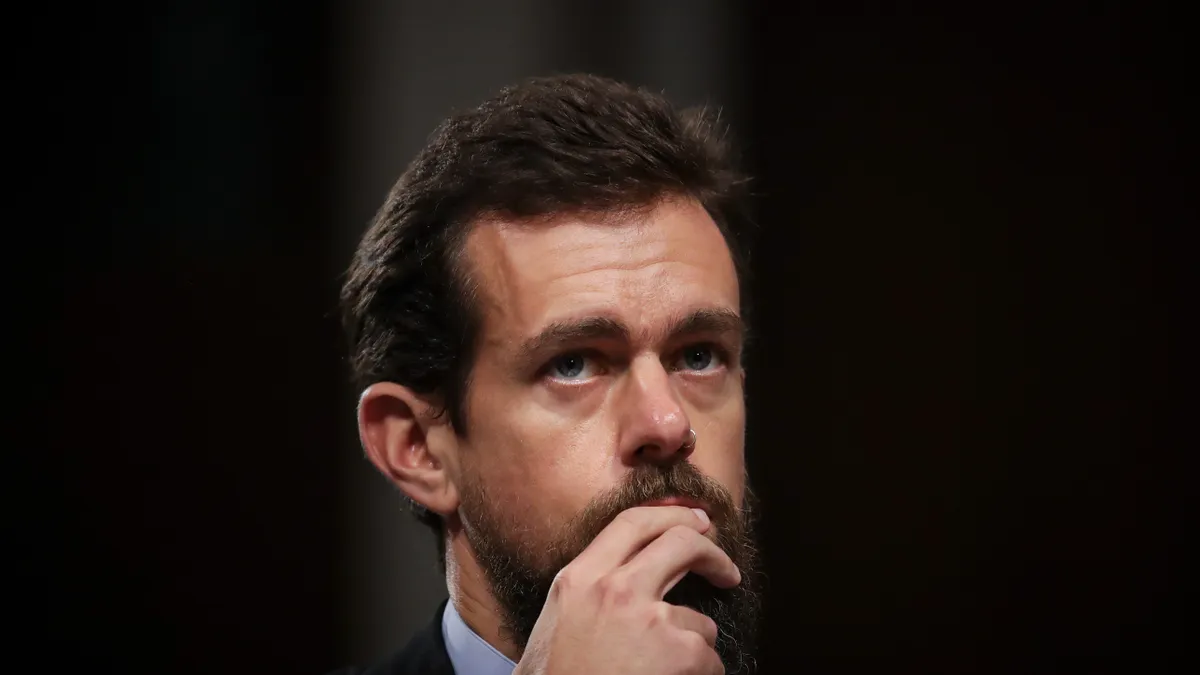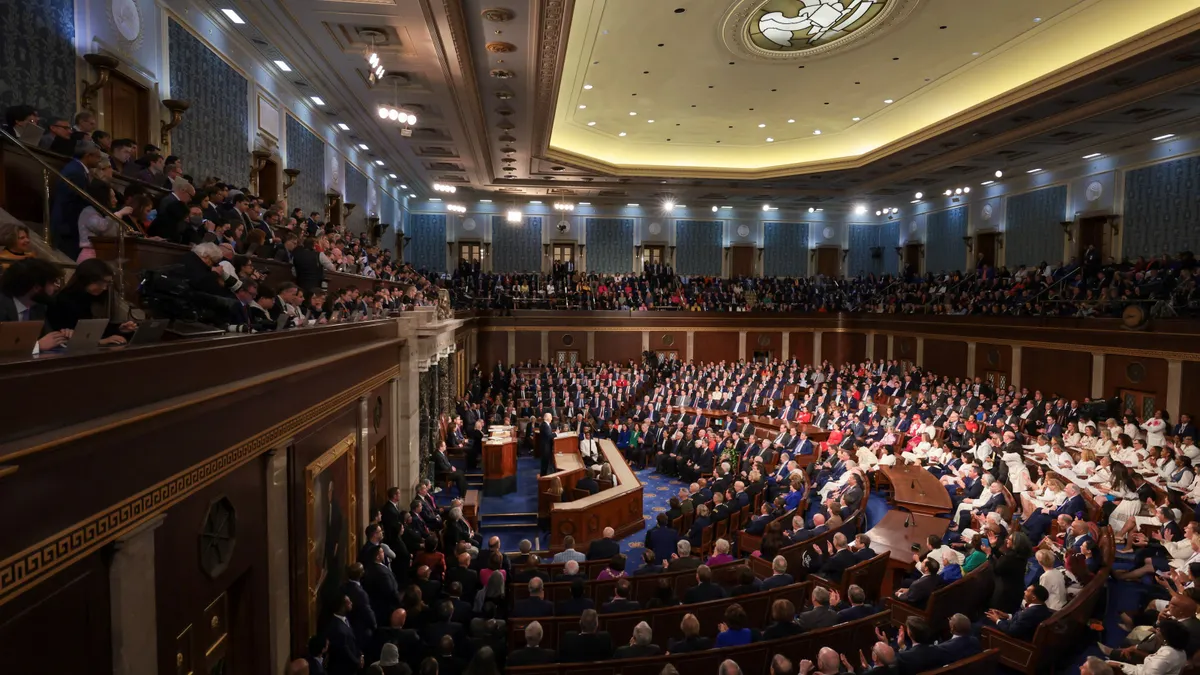Pressure is building on the Consumer Financial Protection Bureau (CFPB) to better police companies that offer consumers the ability to spread payments over time through buy now-pay later (BNPL) financing.
CFPB Director Rohit Chopra began an inquiry last year into the business practices of five of the leading BNPL providers – Affirm, Afterpay, Klarna, PayPal, and Zip– asking them to provide detailed information about their business practices. The deadline to submit public comments was Friday.
In last-minute flurry of some 40 submissions, a group of states attorneys general and a coalition of non-profits argued in two separate comments that consumers needed to be protected from BNPL providers' services. Banking industry groups called on the CFPB to create a level playing field and some trade groups defended BNPL practices. Earlier last week, there were only a few comments in response to the December request.
In one submission, the coalition of 77 non-profit organizations recognized the benefit of BNPL providing some consumers "an affordable way to finance purchases," but then launched into a litany of concerns and called on the CFPB to take a tough stance with respect to BNPL providers.
"BNPL credit presents cause for concern, including: a lack of meaningful underwriting for a consumer’s ability to repay; hidden fees and absence of clear disclosures; lack of dispute or refund rights should a consumer be unsatisfied with their purchase; an incentive created that could lead consumers into taking on unmanageable amounts of debt; a negative impact on credit reporting; and debt collection issues," the coalition's comment submitted on March 24 said.
The coalition included the Association for Financial Counseling & Planning Education, the Center for Responsible Lending, the National Association for Latino Community Asset Builders, Public Citizen and Consumer Reports, among a number of other state and local consumer advocate groups.
Their filing with the agency goes on to note: “BNPL products offer a promise of interest-free payments, but many providers charge fees, including late fees, missed payment fees, account reactivation fees, returned payment fees, and rescheduling fees that are not clearly disclosed.”
In a separate submission, a group of 22 attorneys general raised similar concerns, calling on the CFPB to “prioritize robust consumer protections” during its review of the BNPL sector.
In that March 25 submission, the attorneys general said: “We have concerns about new and supposedly innovative financial products that promise to disrupt and democratize the industry but push consumers into cycles of debt and carry some of the same terms and features as other expensive and predatory financial products.”
Initiating the federal BNPL inquiry
Chopra initiated the inquiry and request for comments in December after complaints by some Democratic senators and consumer activists alleging consumers were taking on more debt than they could afford. He expressed skepticism about BNPL at that time, saying: "Buy now, pay later is the new version of the old layaway plan, but with modern, faster twists where the consumer gets the product immediately but gets the debt immediately too."
The BNPL craze started in Australia with pioneer providers such as Afterpay, and over the past decade spread to Europe, before gaining traction in the U.S. over the past few years. Consumers made an estimated $100 billion in purchases using BNPL financing last year, four times the level of such purchases in 2020, Forbes reported, citing consulting firm Cornerstone Advisors. The service is particularly popular with young consumers who often access it via apps on their phones.
The Bank Policy Institute, a trade group, called on the CFPB in its March 25 submission to “clarify that nonbank BNPL providers are held to the same standards as banks with regard to consumer protections, responsible lending, and consumer data privacy requirements."
Similarly, the Consumer Bankers Association, a trade group focused on retail banking, called on the bureau to institute a level playing field for banks and the fintechs offering BNPL credit in its March 25 letter to the CFPB. "The CFPB should reaffirm that non-bank BNPL lenders, like banks, must engage in responsible lending practices, including providing clear and conspicuous upfront disclosures on all the key economic/pricing terms associated with a BNPL product," the submission said.
The March 25 National Association of Convenience Stores (NACS) submission voices concern about credit card fees associated with rising buy now-pay later sales, particularly given Mastercard’s plans to enter the BNPL market. “CFPB therefore should consider holding BNPL services to the standards applicable to analogous forms of credit,” according to the NACS.
In its March 24 filing, Consumer Reports noted that consumers may become confused about the terms of their loans because of varying web and digital app designs. It has also logged problems for consumers in returning purchases. “Consumers who use BNPL with smaller companies or less reputable websites may face a higher frequency of difficulties,” the consumer review media outlet said.
BNPL backers offered input too
BNPL operators deny claims by critics that they are taking advantage of consumers or are exploiting loopholes in laws and regulations.
“Today, BNPL providers are compliant with consumer protection laws and regulations such as anti-money laundering, privacy, and electronic fund transfers enforced by the CFPB, Federal Trade Commission, and numerous state regulators,” according to the pro-BNPL Electronic Transactions Association (ETA). "New public policies for BNPL products should complement, and not conflict with, existing laws and regulations as well as private sector rules and practices.”
The ETA’s views were echoed by The Financial Technology Association (FTA), which like the ETA has BNPL providers as members. It underscored the point that the average American can’t afford a $400 emergency expense, indicating the need for the service.
“Buy Now-Pay Later is a valuable tool for consumers to manage their cash flow and avoid unnecessary interest and fees,” FTA CEO Penny Lee said in a March 25 press release that noted the organization's submission to the CFPB “BNPL services are subject to federal and state consumer protection laws and regulations and provide low-risk, low-cost payment options to consumers.”
Some consumer activists weighed in earlier this month. U.S. Public Interest Research Group (U.S. PIRG) made some of the same arguments as some of the consumer advocate groups as part of a report. Two nonprofits based in Australia, Financial Counselling Australia and Consumer Action Law Centre, urged the CFPB to learn from their government's mistakes.
A 26-page report released March 10 by U.S. PIRG documents a rise in consumer complaints about BNPL, such as hidden fees and debt collection issues. While the increase may not be surprising, given BNPL's surge in popularity in recent years, U.S. PIRG questions whether policing has kept up.
The industry has critics outside the U.S. too. “BNPL products are currently contributing to the extent and severity of financial hardship in Australia,” the Australian groups said. “This poses a substantial risk to both individuals and the community."



















